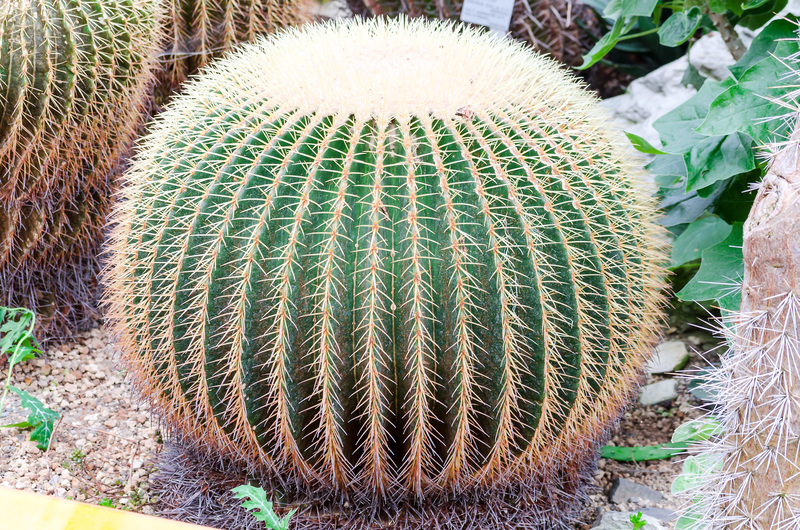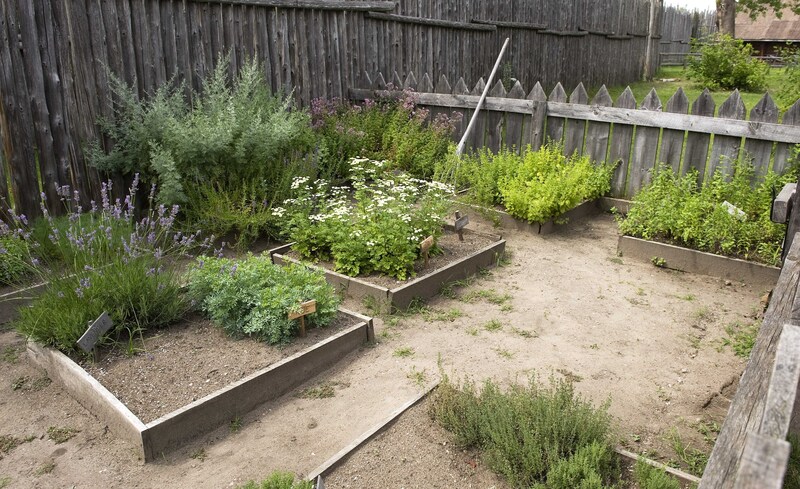Explore the Joys of Growing a Bountiful Herb Garden
Posted on 11/06/2025
Explore the Joys of Growing a Bountiful Herb Garden
Imagine stepping outside your door to pick fresh basil for your homemade pesto, or snipping aromatic rosemary for a savory roast. Growing a robust herb garden is not only delightfully rewarding but also practical and deeply satisfying. Whether you have an expansive backyard or a compact balcony, cultivating herbs offers endless culinary, aesthetic, and wellness benefits.
Why Start Your Own Herb Garden?
There are countless benefits to growing an herb garden at home. From the fresh flavors that transform everyday meals to the therapeutic act of gardening itself, herbs are among nature's most generous gifts. Let's delve into some of the most compelling reasons for cultivating a flourishing herb haven:
- Flavor on Demand: Fresh herbs add vibrancy and depth to dishes, drinks, and salads.
- Cost-Effective: Growing your own saves money compared to buying packaged herbs from stores.
- Health Benefits: Many herbs boast powerful antioxidants, anti-inflammatory properties, and essential nutrients.
- Eco-Friendly: Reduce the need for store-bought plastic packaging and lower your food miles.
- Beautiful Outdoors/Indoors: Herbs enhance your home's beauty with lush greenery and wonderful scents.
- Therapeutic: Gardening reduces stress, encourages mindfulness, and connects you with the natural world.
Exploring a bountiful herb garden can be a transformative and enriching experience, offering pleasure for the senses and well-being for both body and mind.

Choosing the Right Spot for Your Herb Garden
Location is crucial in ensuring your herbs thrive. Most common herbs love full sunlight, typically needing at least 6-8 hours of direct sun daily.
Outdoor Herb Gardens
If you have a yard or patio, choose a spot that receives abundant sunlight and is protected from strong winds. Raised beds and containers are excellent options, especially if your soil quality is poor or you want more control over conditions.
Indoor Herb Gardens
If space is limited, don't despair! Many herbs flourish indoors on a sunny windowsill. South or west-facing windows work best. Be sure to rotate your pots for even growth, and use well-draining pots to prevent root rot.
Selecting Herbs for a Thriving Garden
The diversity of herbs available is astonishing. Consider your culinary preferences, climate, and space when picking varieties. Here are some popular and versatile choices for your abundant herb garden:
- Basil: Essential for Italian dishes, pesto, and salads.
- Parsley: Hardy, vitamin-rich, and perfect for garnishing almost anything.
- Cilantro (Coriander): A must-have for salsas, guacamole, and Asian cuisine.
- Rosemary: Woody, aromatic, and excellent for roasts and breads.
- Thyme: Compact and flavorful, great for savory dishes and marinades.
- Mint: Invigorating for teas, desserts, and cocktails--plant separately to avoid spreading.
- Oregano: Staples for pizzas, pastas, and Mediterranean recipes.
- Lemon Balm: Fragrant and calming, perfect for relaxing teas.
- Sage: Pairs beautifully with poultry, stuffing, and herbal remedies.
- Dill: Ideal for seafood, pickles, and dressings.
Tip: Choose a blend of annuals (like basil and cilantro) and perennials (such as rosemary and thyme) for year-round harvests in your lush herb garden.
Starting Your Herb Garden: Seeds vs. Seedlings
Herbs can be started from either seeds or young plants (seedlings). Each approach has its unique advantages:
- Seeds: Cost-effective, wider variety, and satisfying to grow from scratch. However, they require patience and more initial care.
- Seedlings: Faster and more convenient, ideal for beginners. They can be planted directly into your garden or containers after the last frost.
For many, a combination of both methods is most effective when creating a plentiful herb garden.
Soil, Water, and Light: Essentials for Herb Success
Soil
Herbs love well-draining soil. If your outdoor soil is heavy, amend it with compost and sand. For containers, use a high-quality potting mix that assures drainage while retaining enough moisture.
Water
Most herbs dislike soggy soil but won't thrive if perpetually dry. Water when the top inch of soil feels dry to the touch. Overwatering is a common problem that can lead to root rot, so always check before watering.
Light
Sunlight is vital for a lush, bountiful herb garden. Aim for a sunny spot. Indoor growers may consider supplemental LED grow lights during winter or in low-light homes.
Smart Maintenance for Your Thriving Herb Garden
Pruning and Harvesting
Regular pruning encourages bushy, healthy growth. For most herbs, pinch back stems just above a pair of leaves. Harvest frequently to prevent blooming, which can alter taste (especially for basil and mint).
Fertilizing
Herbs are not heavy feeders. Use organic compost or a balanced slow-release fertilizer sparingly. Too much fertilizer can reduce flavor intensity, especially in Mediterranean herbs like rosemary and thyme.
Pest Management
Herbs are relatively resistant to pests, but aphids, slugs, and spider mites sometimes pose problems. Remove pests by hand, use natural sprays like neem oil, or introduce beneficial insects (ladybugs). Companion planting with flowers like marigolds can deter unwanted pests.
Creative Herb Garden Ideas to Suit Every Space
Raised Beds and Traditional Plots
For gardeners with more room, raised beds provide structure and excellent drainage. Arrange herbs according to their height and light needs: taller rosemary or sage at the back, with smaller thyme and basil in front.
Container Herb Gardens
Containers are ideal for patios, balconies, and decks. Choose pots with good drainage holes. Group herbs with similar water needs together. For easy mobility, use wheeled trays or lightweight pots.
Vertical Herb Gardens
Maximize tight spaces with vertical planters, hanging baskets, or wall-mounted pockets. These designs create stunning green backdrops and keep herbs conveniently within reach.
Windowsill and Indoor Herb Gardens
Year-round greenery is possible on your kitchen sill. Start with a trio of your favorite herbs for instant culinary access. Remember to rotate them for even sunlight and water regularly.
Companion Planting in Herb Gardens
Many herbs benefit their neighbors through companion planting--a natural approach for healthier, more resilient gardens. Here are some classic combinations:
- Basil and Tomatoes: Basil repels pests and enhances growth and flavor of tomatoes.
- Rosemary and Beans: Rosemary deters bean beetles.
- Chives and Carrots: Chives ward off carrot flies.
- Dill and Lettuce: Dill attracts beneficial insects that protect lettuce.
Harvesting, Using, and Preserving Your Home-Grown Herbs
Harvesting Tips
- Pick in the Morning: Essential oils are richest before the day's heat.
- Use Clean Shears: Avoid damaging your plants with sharp, sanitized scissors or pruners.
- Don't Over-Harvest: Never take more than one-third of a plant at a time to encourage regrowth.
Using Fresh Herbs
Freshly snipped herbs can elevate almost any dish. Add them at the end of cooking to preserve their flavor, or blend into sauces, soups, and salads for bursts of freshness. Infuse oils, make herb butters, or craft herbal teas and cocktails straight from your flourishing herb garden.
Preserving Your Herbs
As your garden grows, you'll have more herbs than you can use right away. Preserve them for future enjoyment:
- Drying: Hang bunches upside down in a dry, well-ventilated place. Once crisp, store in airtight jars away from light.
- Freezing: Chop herbs and freeze in ice cube trays with olive oil or water for instant seasoning portions.
- Herb Infusions: Steep herbs in oils or vinegars for homemade gifts or gourmet cooking essentials.
- Pestle and Mortar: Grind dried leaves for homemade spice blends.
Common Challenges and How to Overcome Them
Dealing with Poor Growth
- Lack of Sun: Move plants to a sunnier spot, or invest in grow lights for indoor herbs.
- Poor Soil: Amend with compost, or repot with quality potting mix for containers.
- Insufficient Watering: Check soil regularly and adjust your watering routine as seasons change.
Pest and Disease Problems
Practice crop rotation and remove infested leaves promptly. Use organic pest control methods and encourage beneficial insects as natural protectors.
Seasonal Tips for a Year-Round Herb Harvest
- Spring: Start seeds indoors, plant hardy varieties outdoors after frost.
- Summer: Harvest frequently, water consistently in hot weather.
- Fall: Move tender herbs indoors, dry or freeze surplus harvests.
- Winter: Continue harvesting indoor herbs, supplement with grow lights if needed.

Inspiring Ideas for Using Home-Grown Herbs
Culinary Delights
- Whip up fresh pestos, herb-infused oils, and salsas.
- Bake rosemary focaccia or basil-laden pizzas.
- Create custom tea blends with soothing lemon balm and mint.
Natural Beauty and Wellness
- Craft homemade bath salts, scrubs, and face masks with lavender and sage.
- Blend herbal salves and ointments for minor cuts or insect bites.
- Make aromatic sachets to freshen closets and drawers.
Creative Home and Garden Projects
- Design decorative herb wreaths and table centerpieces.
- Gift hand-tied bundles of dried herbs to friends and neighbors.
- Welcome pollinators and beneficial insects by letting some herbs flower.
Conclusion: Cultivate the Abundance and Joy of Your Own Herb Garden
Growing a generous herb garden at home empowers you to enhance your meals, beautify your space, and prioritize natural living. Whether you cultivate a few pots on a windowsill or nurture a sprawling outdoor plot, herbs are remarkably adaptable and will reward your care tenfold.
With the right spot, careful planning, and a little loving attention, anyone can experience the profound satisfaction and joy of harvesting a fresh, bountiful herb garden. Start today, and open your doors to a world of flavor, beauty, and vibrant health--one fragrant, emerald leaf at a time.
Let your gardening journey begin. Happy herb growing!
Latest Posts
How Gardening Innovations Can Mitigate Climate Change Impact
Weather-Resilient Gardens: Protecting Your Plants and Crops
Unleash the Potential of Your Garden with Creative Seating Tips

